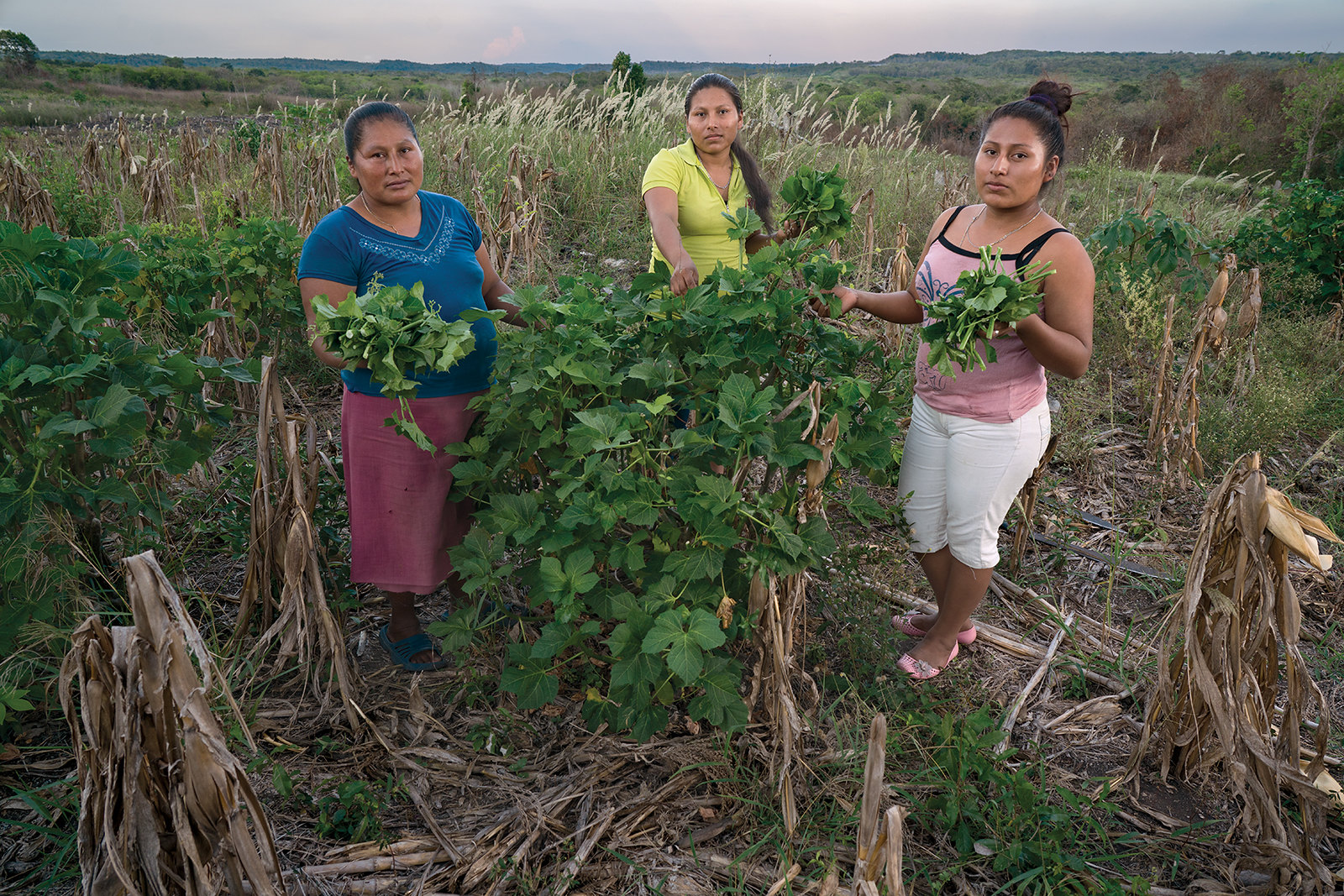
Throughout the Americas and the world, the name of Chiapas, Mexico, has become synonymous with struggles for indigenous resistance. From the First Indigenous Congress held in San Cristóbal de las Casas in 1974 to the 1994 uprising in which the Zapatista Army of National Liberation launched a struggle for land and liberty that would change the political geography of Mexico and shake loose historical memory across the continent and around the world, to the 2001 March for Indigenous Dignity in which thousands descended on Mexico City to demand that the congress of the nation amend the constitution to include a Law of Indigenous Rights and Culture, Chiapas has been at the vibrant heart of the construction of new forms of indigenous struggle and territorial autonomy.
One set of beliefs, generally translated as el buen vivir, or living well, is at the heart of indigenous resistance. A similar concept, the Quechua notion of sumak causay, gained a certain recognition among climate justice activists following the Cochabamba People’s Summit on Climate Change and the Rights of Mother Earth convened by President Evo Morales of Bolivia in 2009. As sumak causay was brought to the awareness of the non-indigenous by Andean social movements a few years ago, now in Chiapas a generation of Indigenous scholars is bringing to light – theorizing, they would say – the local understanding of buen vivir: a concept articulated in Tseltal and Tsotsil as el lek’il kuxlejal.
I first encountered el lekil kuxlejal in 2009 in a book by scholar Antonio Paoli called Education, Autonomy, and lekil kuxlejal. Paoli resists a simple definition of lekil kuxlejal in favor of giving its socio-linguistic context amidst related concepts such as k’inal, (meaning environment, including both ecosystem and mind) and the broader slamalil k’inal, a tranquility of mind on which the state of lekil kuxlejal depends. “lekil kuxlejal, or buen vivir,” Paoli writes, “is not a utopia, because it is not a non-existent dream. No, lekil kuxlejal has been degraded but not extinguished, and it is possible to recover it.”
“Lekil kuxlejal is not a utopia, because it is not a non-existent dream. No, lekil kuxlejal has been degraded but not extinguished, and it is possible to recover it.”
Through reading, I’ve come to understand lekil kuxlejal as a kind of ethical compass and motivating force in Tseltal and Tsotsil life; the root of agreements in the family and the community, in the practices of agriculture and governance, of medicine and stewardship.
Eager to learn more, I sought out two Chiapaneco scholars – two of what seems to be a generation of Maya intellectuals turning the lens of scholarship on their own cultural knowledge and practice. Pedro Hernández Luna (Tseltal Maya) and Miguel Sanchez Alvarez (Tsotsil Maya) are scholars associated with the Intercultural University of Chiapas (UNICH), an institute of research and higher education devoted to scholarship that fosters and strengthens Indigenous cultural knowledge and identity. I sat down with them in a café in San Cristóbal de las Casas to talk about lek’il kuxlejal.
Jeff Conant: Do you see el lek’il kuxlejal as an alternative to Western notions of development?
Pedro Hernández: The proposal of lek’il kuxlejal is not another model of development, but it’s how we see our own development. The Zapatistas have put it in practice, and for the government, for outsiders, it appears contradictory – how are these Indigenous people going to have development if they don’t accept government programs, schools, television? But unless you’ve lived through hunger, you’re not going to find it easy to understand these other ways of seeing, and of constructing the world.
This is an unreachable hope that goes beyond the desire for material goods. There needs to be much greater understanding of the perspectives of Indigenous peoples, and even many non-Indigenous peoples who share this commitment to a different way.
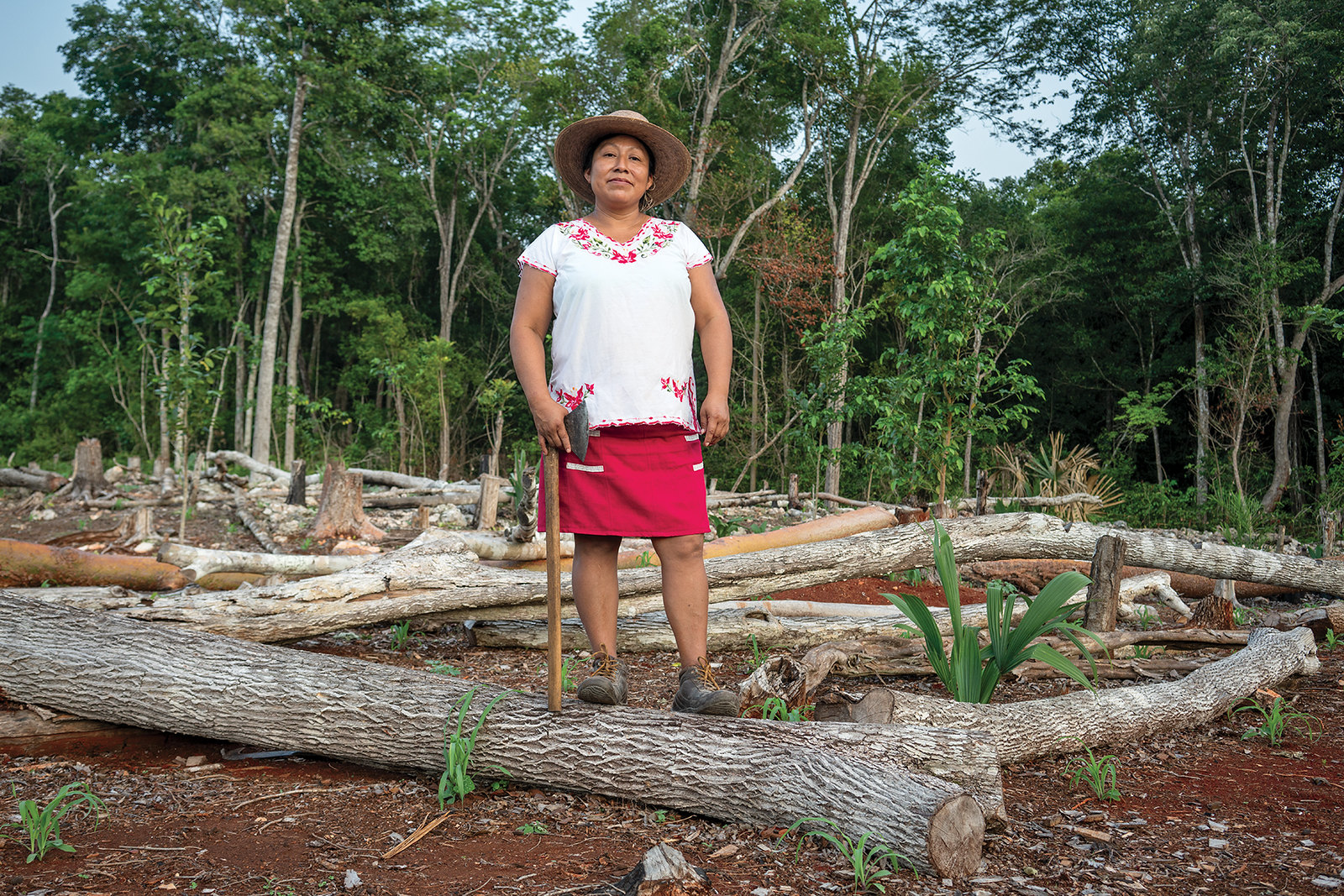
Photo: cimmyt/flickr (CC)
Miguel Sanchez: In Mexico, in Latin America, in the world, there are two models of development broadly speaking. There are many of course, but for clarity, let’s say there are two – they are the globalized system, the system that dominates, that is hegemonic for many people in the world. In Mexico specifically, all of the policies—education, health, environment—who defines them? The United Nations. The UN defines lines of development, but for us as Indigenous peoples the concept of development doesn’t exist. In Tseltal, in Tsotsil, development doesn’t exist. The concept comes from natural sciences and was adopted by Harry Truman – that development is growth, accumulation, opulence. But from our viewpoint, nature is not just the mazorca, the ear of corn that is the product, but the entire milpa [the Maya cornfield] and the milpa doesn’t grow without the social base, without the Mother Earth.
There is corn in different colors – white, blue, red, yellow. And there are still more different colors if we mix these – they are so diverse, just like us. This imposition of a political economy defined by the UN and the dominant nations brings a grave problem – the loss of knowledge of our ways of life. In the case of Mexico there is a vision of development seen from the dominant culture, but we see a vision of development based in the language, the earth, the culture, the sacred places. Since the colonial period, they’ve imposed Christian evangelism. We weren’t even people, we were animals – we didn’t even have a soul according to the Spaniards. This doesn’t just bring ethnocide, but linguicide, epistemicide [the killing of ways of thought], cosmocide [the killing of entire worlds]. It brings an ongoing destruction.
Despite this, our ancestors have always continued building this vision in a way that is simple, humble – as E.F. Schumacher said, small is beautiful. Because the human being is small, human production should be small. The most humble way, then, is the life of buen vivir, lek’il kuxlejal. It doesn’t seek wealth or domination, but peace.
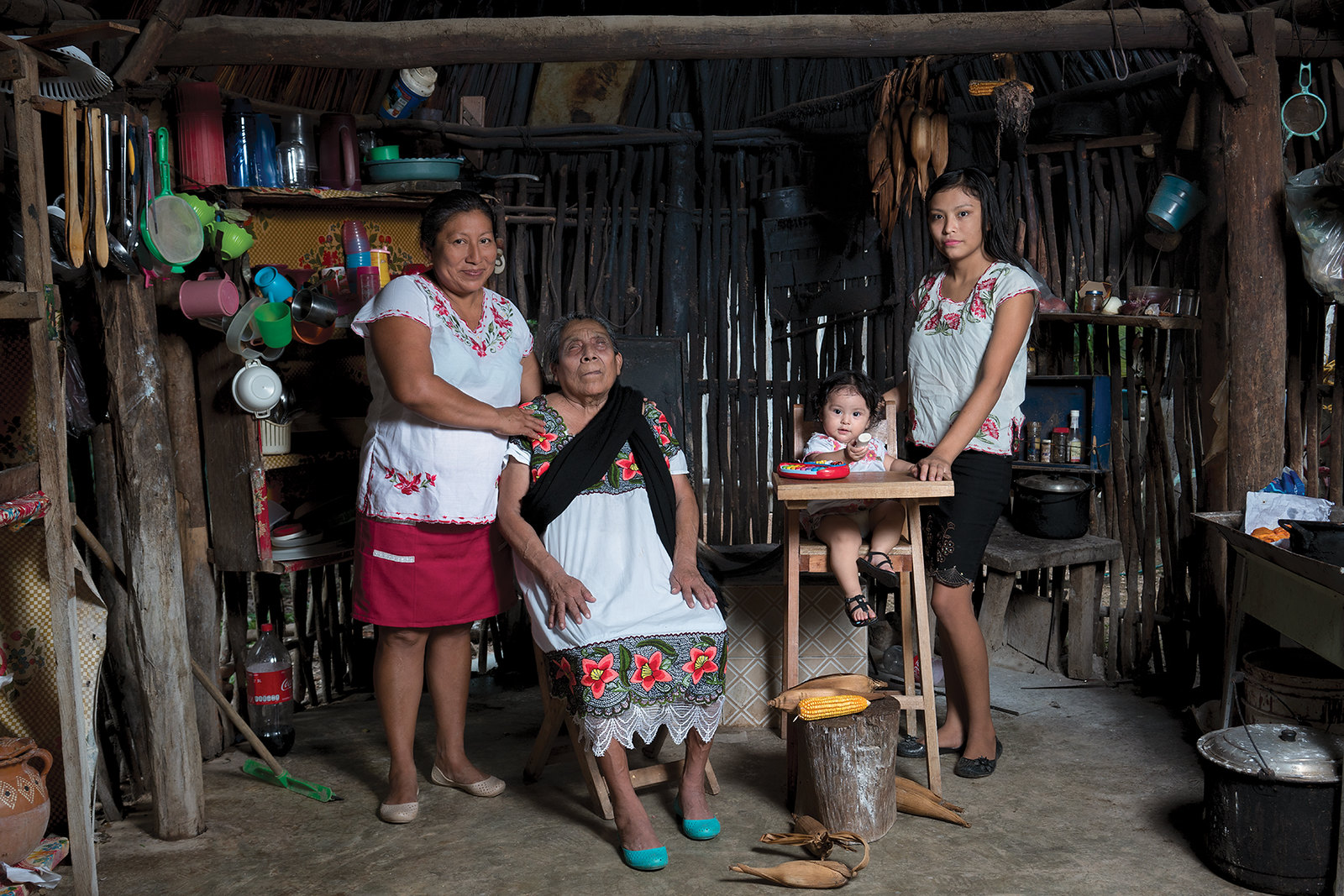
Photo: cimmyt/flickr (CC)
The other system is one of domination, pillage, destruction, violence. The UN claims to uphold policies of equality, justice, the patrimony of humanity, but it is violating its own policies, violating the rights of peoples, leaving aside the rights of peoples even as it says it is protecting them.
Returning back to the milpa, to the mazorca – we see that amidst this political approach in Mexico, copied from Europe, from the U.S., people continue maintaining their own forms of use and management of their territories. They continue maintaining the forests, the soils, the language. The corn and beans are being multiplied still, but with a great threat that the acculturation is penetrating very strongly, and it puts at risk the permanence of our cosmovisions, our practices, our knowledge.
So, here there’s a grave problem. Fortunately, speaking from the social sciences, we have a base to work from: the great work is where to go from here, how do we advance the notion of buen vivir, living well. It begins with respect, with no aggression, with the understanding that we are part of the universe, that we are children of the earth. This is the beginning of el lek’il kuxlejal.
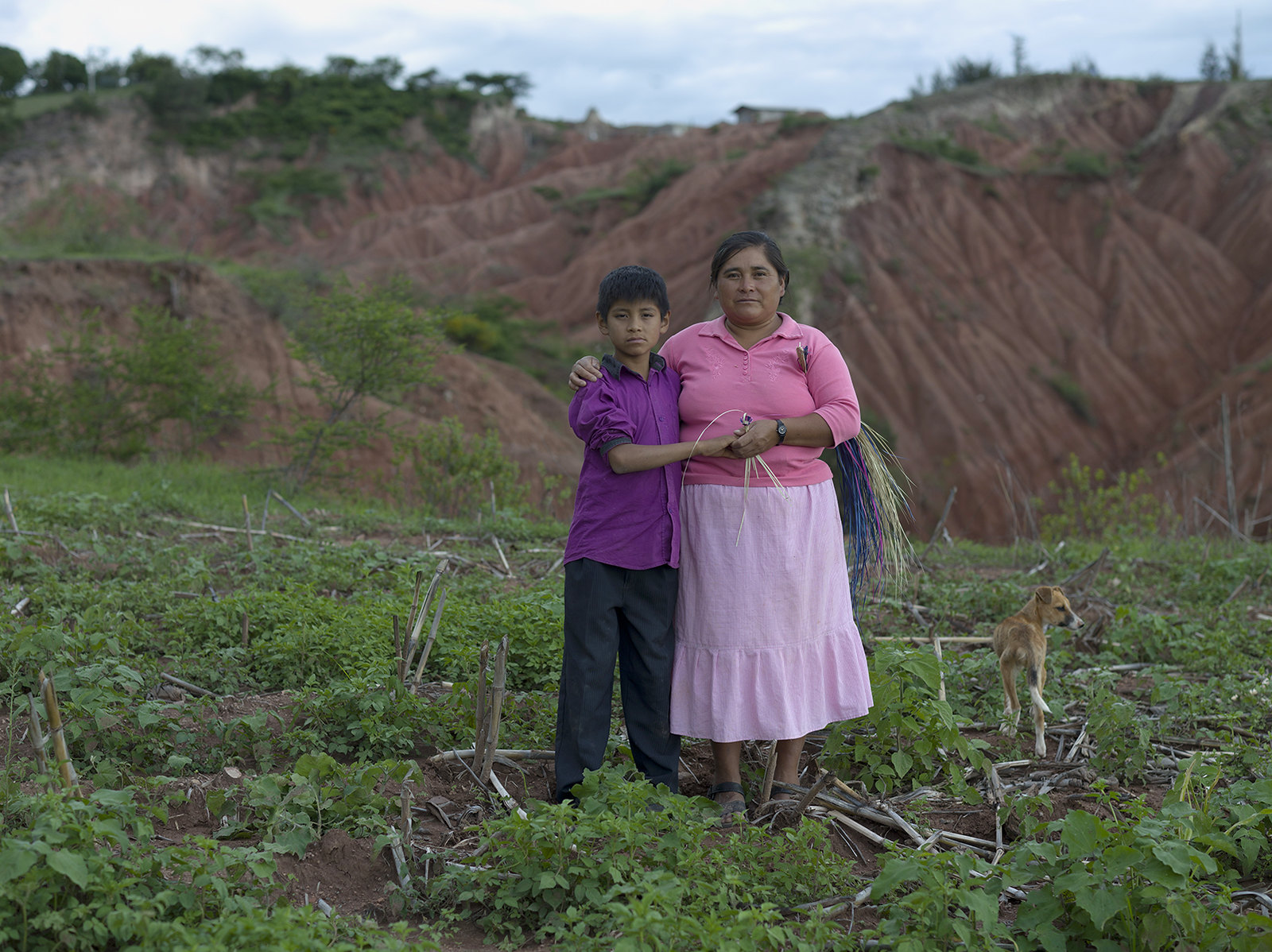
Photo: cimmyt/flickr (CC)
JC: In your vision, what are the perverse effects of the neoliberal model of conservation?
Pedro Hernández: When we talk about conservation, there is a wide gap between Western and Indigenous understandings. In Tsotsil and Tseltal, the word “conservation” doesn’t exist. We could look for equivalents, but that would be the wrong approach; instead we need to value our own traditional understandings.
First, conservation why, and for what? The Natural Protected Areas implemented by the Mexican government bring about a huge separation between nature and society, whereas, from the point of view of Indigenous peoples, we see ourselves as part of nature. We have our own community reserves, with their classifications, and we have what in conservation they would call nucleus areas, but we don’t prohibit anyone from taking plants, from using wood, from gathering mushrooms, because this is all part of the life of the community. There are many communities that have fallen into the neoliberal model, that have learned to look at a mountain and see dollar signs. But there are still many who have not. There’s a great wealth among our ancestors who see nature as an extension of the community, and the community as part of nature.
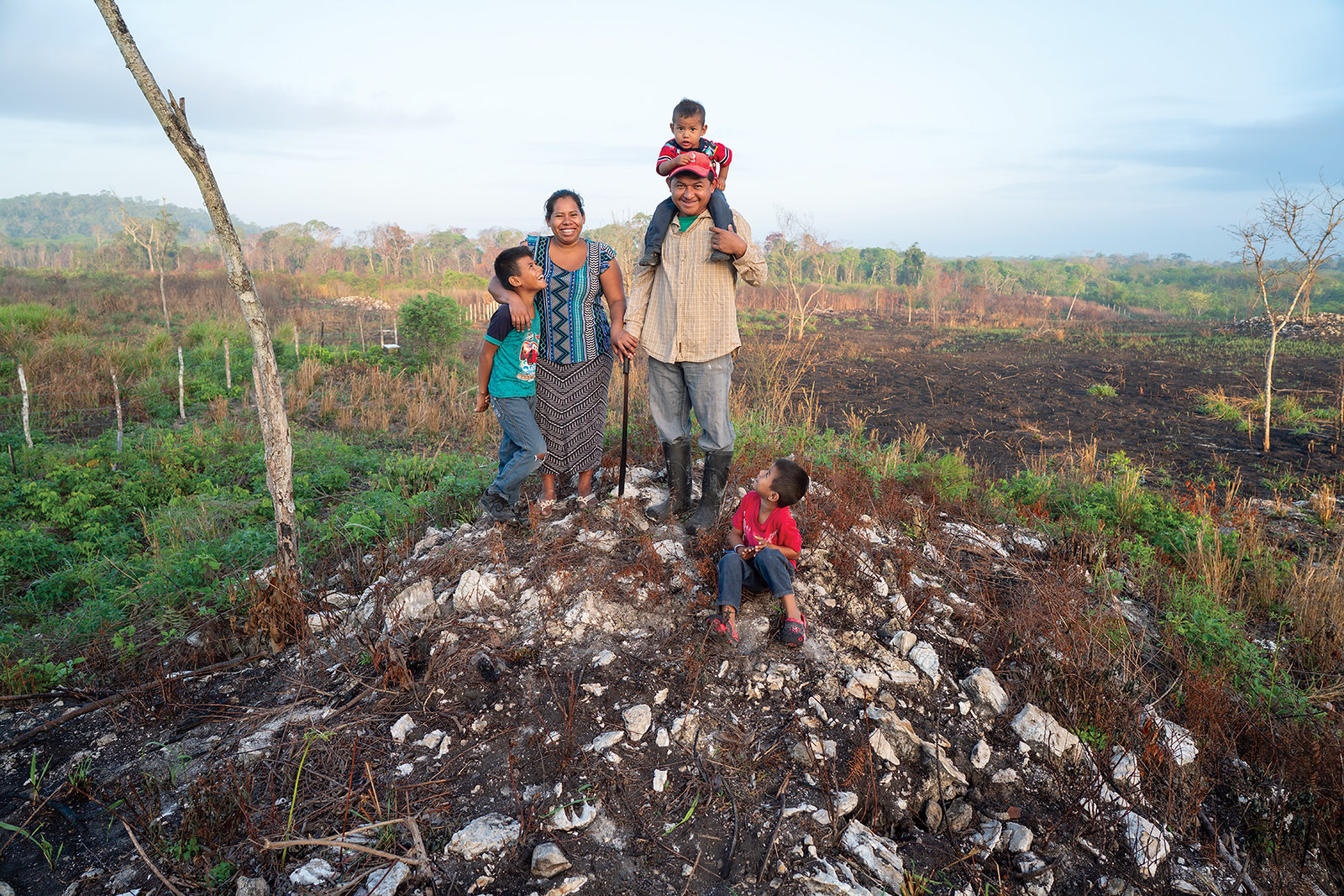
Photo: cimmyt/flickr (CC)
For example, the iloles or curanderos, and the midwives, who pray on behalf of life, who pray for health, who evoke the gods. Our fathers go to the milpa to pray, and this keeps the milpa alive and keeps the form of prayer alive as well.
JC: In the Western model of conservation, the idea is to set aside natural places where nobody can go, or where people can go but can’t make any use of the plants and animals there. In your communities, are there places like this, maybe sacred places, where no one should go?
Pedro Hernández: Independent of the idea of conservation, for many communities there are sacred places, and it’s important to maintain the significance of these places. In the occidental vision, I pay you so you’ll protect this place, but don’t touch anything in the forest. But it’s precisely due to the intervention of humans in the forest that we find the richest biodiversity in Indigenous territories.
Part of our informal education is that the sacred places are the places we visit most – it’s not that you don’t go, but that you have to know how to go, and how to present yourself. You have to ask permission for certain activities. If you don’t know how to ask, you have to ask in the way you know.
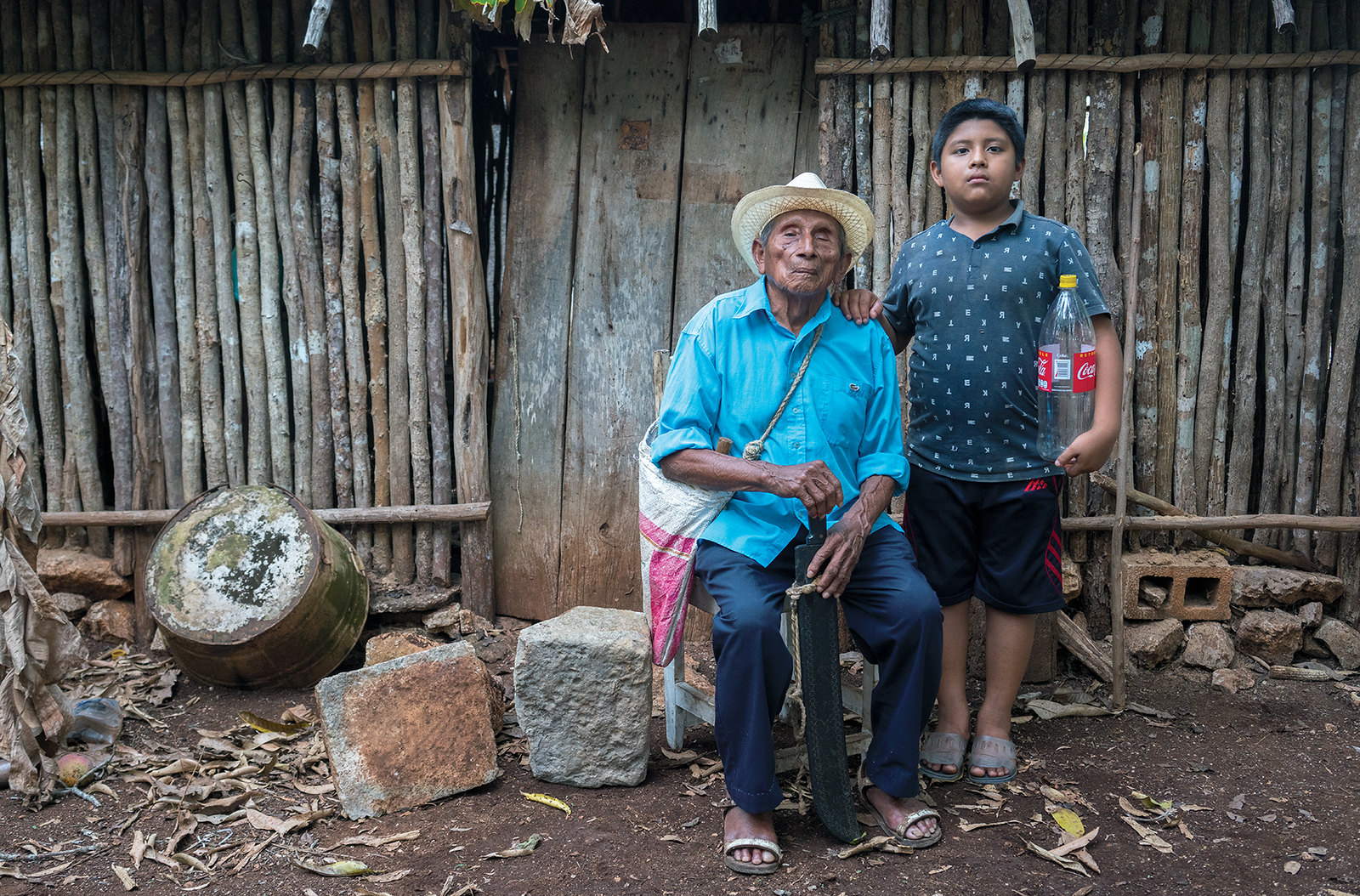
Photo: cimmyt/flickr (CC)
Miguel Sanchez: Ch’ul os’il balamil means respect for the earth. It’s a philosophical principle if we want to see it that way. Ix ta’muk is to take ourselves at our most grand, to dignify the universe, to dignify the earth, to dignify life. The iloletik, the traditional prayer-makers and midwives, still maintain this vision and they continue venerating the earth, the mountains, the home.
Among the principles of buen vivir are common work; comun pas’kin, community celebration; comun chapanel, collective governance, the way communities work things out collectively in assemblies.
But we can also recognize the decomposition of these ways. Now, we can’t find a pure expression of lek’il kuxlejal that hasn’t been changed by these international institutions, but its still present. It’s there in the celebration of sacred places. In Huixtan we’ve identified more than 220 sacred places that have prehispanic, colonial, and contemporary antecedents.
Another principle of buen vivir is education in the family and the community that transmits knowledge in a way that is much more powerful than state-sponsored education. The problem is that this has been marginalized. How to do you produce a chicken, or a turkey, for example? This is a teaching you don’t learn in school. All of this knowledge – how do you cultivate corn? Children now aren’t learning this. So this is an important part of buen vivir.
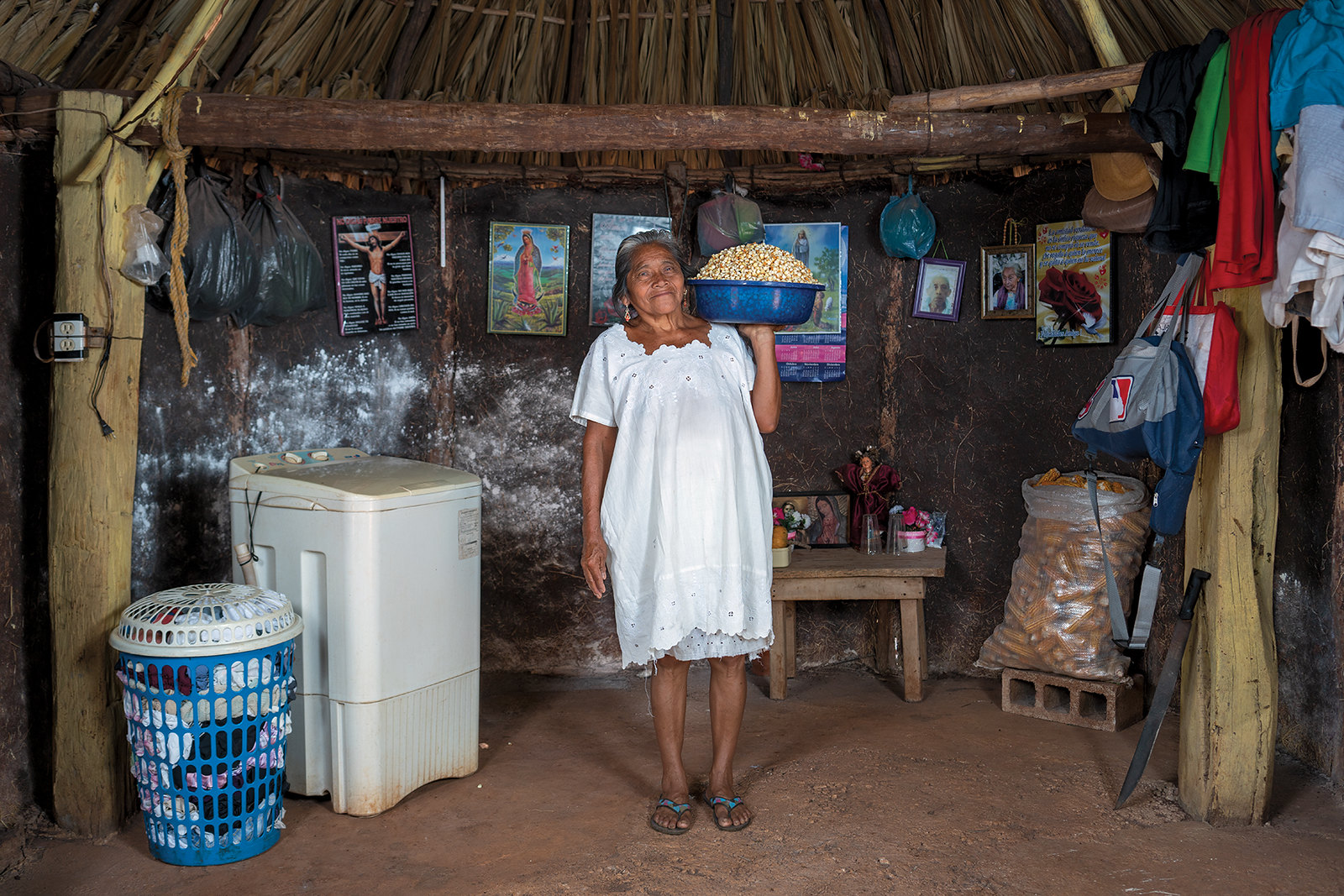
Photo: cimmyt/flickr (CC)
How do international policies affect this? For example, they decree these biosphere reserves in Mexico, but the people don’t know their importance, the wealth of plants, of animals – they’re isolated. They say it’s dangerous for the Indians to enter there because they’re going to take an axe and cut it all down. But, if there were common work, a more harmonious relationship between people and the land, we wouldn’t have this problem. On television they are announcing that children should go to the jungle to draw pictures because it’s very pretty, but they keep out our communities because we might destroy it.
This doesn’t mean I’m against the Reserves. The problem is the policy of exclusion. They have protected areas, but they’re not even helping to educate the children about these areas; they’ve broken the cosmovision. These are the great challenges, the great threats to el buen vivir.
But buen vivir is not just for us the Indigenous peoples, the Mayas, the Zoques, Quichuas, Aymaras. It has to serve global society. We have to achieve a synthesis because the capitalist system has to end. We may not see it, but our great, great grandchildren will. They’re going to live this collapse.
We see it like this: we can destroy all the wealth of the earth, but we’ll destroy ourselves, like the dinosaurs. Now we’re going to use up all the petroleum, and then what? So, here, I think its not that we’re so important, it’s that if we’re extinguished by el cho’pol kux’lejal – bad living – we lose. How do we ensure that this ear of corn can continue to grow with all of these colors?
Our Maya ancestors were able to adapt. They didn’t just disappear, they dispersed into small pueblos, and here we are. We are very adaptable. Hopefully in some moment, the big wealthy people can separate themselves from their wealth. They need to stop using so much oil, food, water, metals, energy, everything. Their opulence is our destruction.
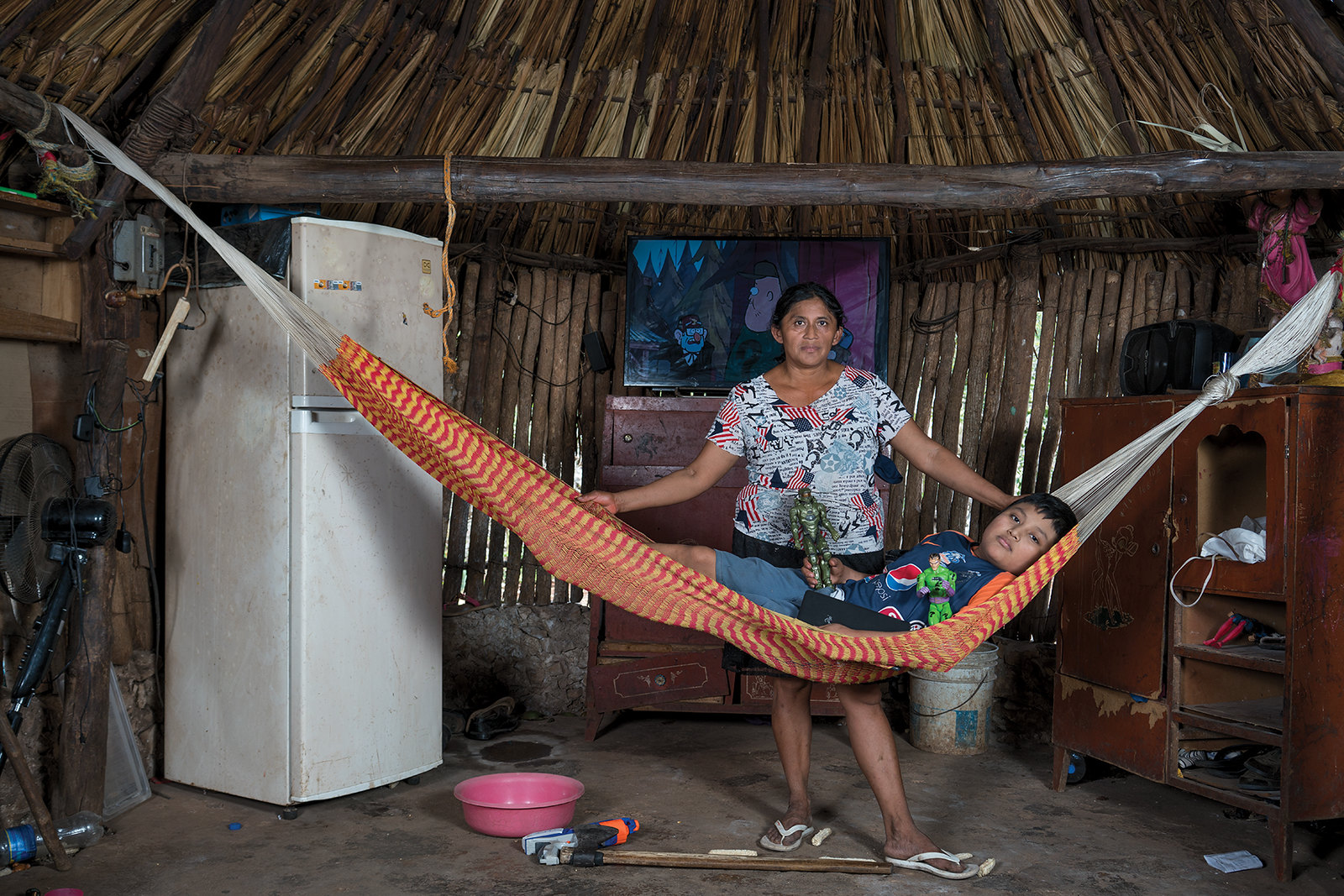
Photo: cimmyt/flickr (CC)
JC: When you say there’s a crisis now, do you mean just now as in the contemporary moment, or are you referring to the crisis of the past 500 years?
Miguel Sanchez: Yes, there has always been a crisis. But it’s accelerated due to the extractive model of development. Since the industrial revolution, how many cultures have been destroyed? Fromm the 1950’s until now in Chiapas, not just the Catholic Church but the Protestant Church too has atomized the communities.
We have a lot of work to do to keep denouncing, to keep protesting. This is the importance of the role that we play, the professors. There’s still a lot of fear of the Indigenous question – that the Indigenous ‘wakes up’. Well, look, we’ve always been awake. We’ve never been without historical consciousness, we’re always aware of what we’re living through. Those without historical memory are the wealthy.
JC: What does the current moment of Indigenous peoples’ uprising have to do with lek’il kuxlejal?
Miguel Sanchez: The truth is, the Indigenous uprising has never stopped. The politicians now just know more quickly because of the communications media. In this way, we’re seeing a resurgence of the Indigenous movement, but at the same time, its always present – we’ve always resisted, we’ve always been conscious of the crisis we’re living through. I think right now, in the crisis of civilization, that they hear us, that they listen to us, that we’re present. We’re in a moment of a lot of movement for these reasons.
Our ancestors saw that this moment would be a moment of transformation. There is a waking up, but we haven’t connected much, we haven’t built a greater unity, due to national borders. The entire Maya nation should be connected to brothers in Canada, in the South, among ourselves. There is a subterranean river that is connecting us, that has always connected us, by way of our rejection of certain programs, by way of resisting.
We see this in GMOs, in biofuels, in African palm plantations. We’ve always resisted, and we get together and we plant the milpa as our way of resisting. Communal forms of organizing, sharing knowledge, sharing seeds, sharing the different varieties of chickens, of turkeys, all of this has to do with buen vivir. But it gets constantly weakened by the question of capital.
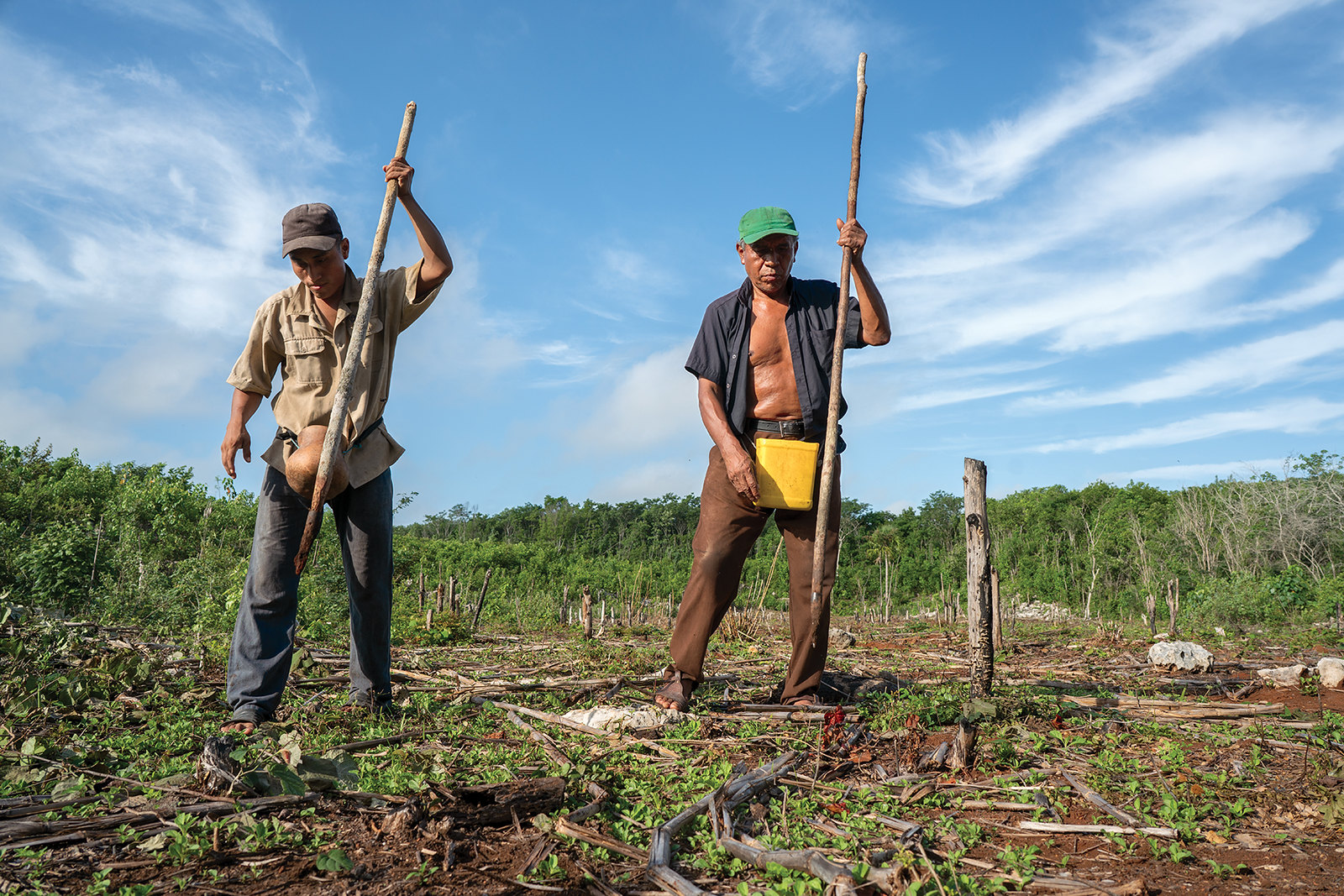
Photo: cimmyt/flickr (CC)
JC: Can you have buen vivir in the cities?
Miguel Sanchez: If the people open up to it, I think so. If they realize that we can’t be dependent on Walmart, on Sam’s. It’s important to have commerce, but it needs to be balanced. I’d say that el lekil kuxlejal means a simple life, it means no accumulation or excessive consumption. So in fact it should begin in the cities.
JC: What is the role of lekil kuxlejal in intercultural education?
Pedro Hernández: They use the term ‘informal education,’ but it’s poorly named. It’s formal in that it forms us – this child knows how to plant the milpa, this child knows how to make posole, this child knows how to hunt. That’s true formation.
They can put these words in the Constitution, that we have a right to culturally appropriate education, but as long as there’s not a just distribution of what this country produces, the whole thing remains empty rhetoric.
Miguel Sanchez: We have been formed by an occidental education system, we’ve been contaminated by it you could say, but over time, we’ve come to reclaim the epistemology of our mothers. We can do this by way of the rural path, the campesino path, but also by way of the academic path. We have to eliminate the bias against becoming academics, just as we have to eliminate the bias against being rural people, agricultural people.
Pedro Hernández: Little by little we go decolonizing, recognizing agricultural knowledge, forest management, systems of justice, of education, of governance, we need to recover these great bodies of knowledge in the question of the relation people have with the environment, the family, the community. How does a community organize itself to do communal work, to sanction those who don’t do their part, to avoid abuse of resources? When they take up their cargo [the traditional form of individual service to the community], its not because they’re avoiding sanctions, but because they are doing what the community requires of them.
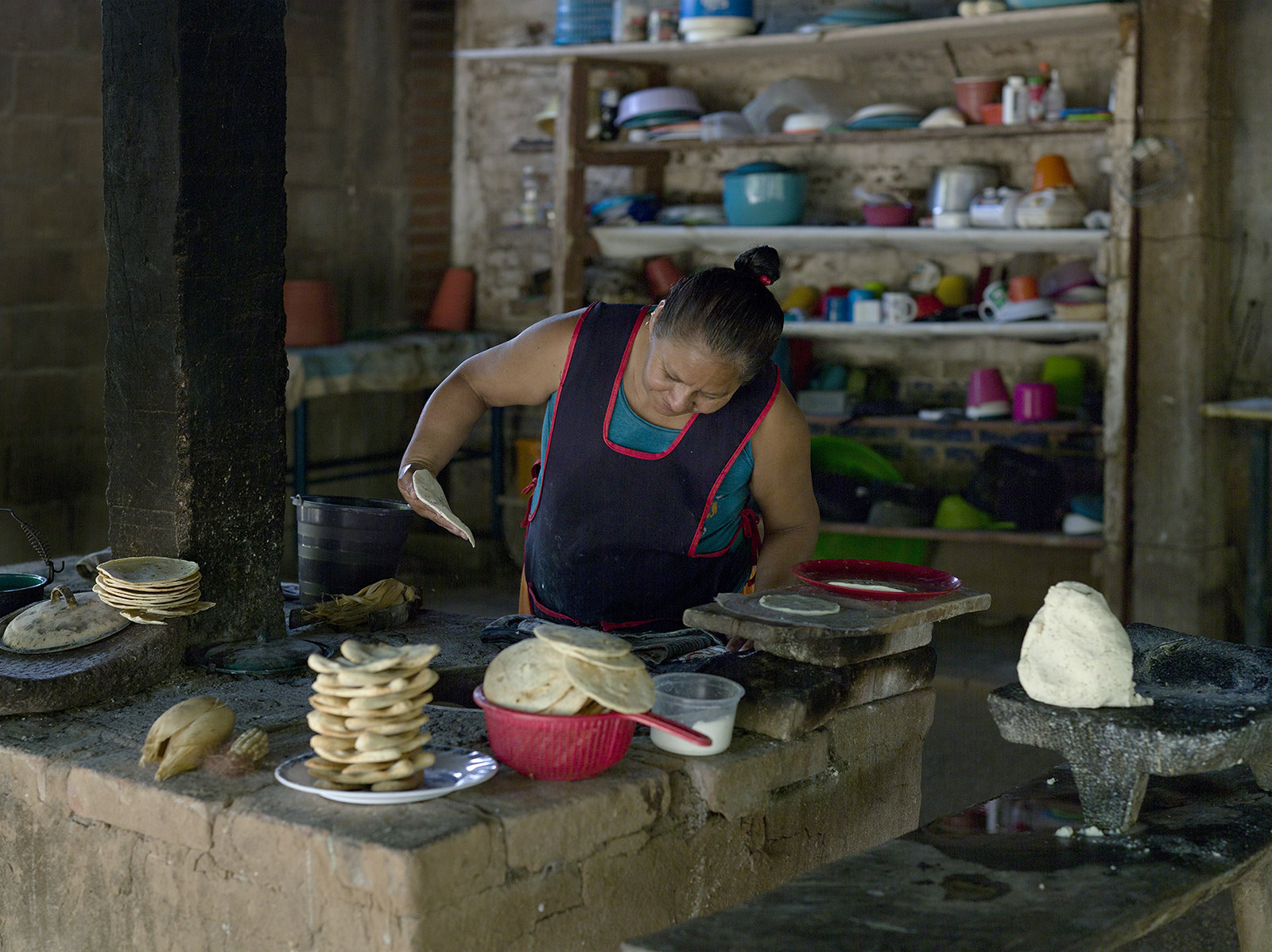
Photo: cimmyt/flickr (CC)
We also can’t fall into an idealization of Indigenous communities. Buen vivir isn’t free of conflict – in our assemblies we have conflicts, but the community assembly has a tremendous capacity to come to an agreement through the conflict. The community exists because of the tensions—the process of working through conflict is the practice of producing and reproducing the community. We have understand this—to talk about buen vivir, we have to begin with decolonization of knowledge, of our own perspectives.
JC: It seems to me it must be a great challenge to apply academic frameworks to your own cultures, and to bring to light Indigenous forms of knowing through a fundamentally western form of constructing knowledge.
Miguel Sanchez: lekil kuxlejal is a concept that has a philosophical base, and has always existed in practice, but now we’re doing the academic work of theorizing it.
It’s a great shame that when we bring these ideas forth, we’re told that we need to cite Badiou, Marx, Hegel, Aristotle, that otherwise it’s invalid. We have to decolonize all of this – and to remember that these ideas already have form, already have life.
For us, its important to know the history of humanity, to know Socrates and the Greeks and the Western canon, but to know it in a way that’s engaged with a diversity of thinking. When I speak of Indigenous science, Indigenous technology, no one knows these terms. Science makes us think of Asia, of Europe, of the ancient Egyptians, of the Arabs, but not the Maya. But 1000 years ago, the Maya had a very sophisticated science, mathematics, astronomy, medicine, agriculture.
So it’s important that we develop an understanding of our own science and of our philosophy, and at the same time to take a stance that is critical, even rebellious, toward Western science.
The Popul Vuh says the world began in dust and silence, and that’s what Western science has come to understand, and it’s good to see these confluences. But, look at our hands, we have ten fingers, and each one is a different road we can walk down. When we talk about the development of seeds, the domestication of turkeys, of chayote, of yucca, this is science, these are technologies, and these are roads the Maya have gone down.
I’ll say it again: our ancestors were great mathematicians. My father, when he would wake up before dawn, he could look at the sky and know exactly what time it was. Isn’t that science? Now, I don’t have that ability. I feel a great sadness in my heart that we’ve lost too much. There are things we’ll never recover.
El buen vivir isn’t a discourse, it’s a way of life, and that’s the hard part, it’s how to make a life. We can do this with a certain amount of technology, but as Schumacher said, small is beautiful. We need to practice pijil winik, the management of time; we need to control the machines, not be controlled by them.
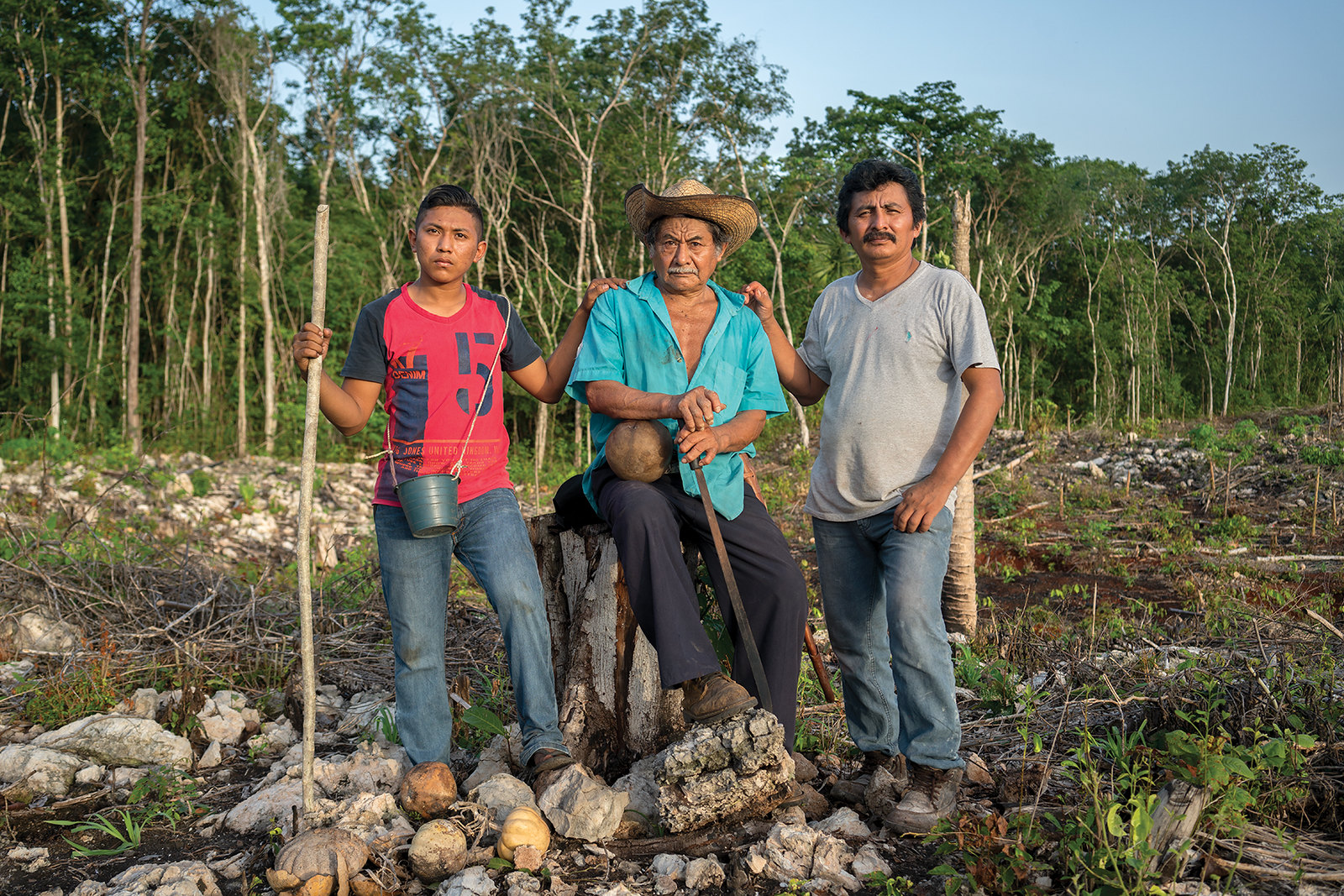
Photo: cimmyt/flickr (CC)
Where el buen vivir has been forgotten, technology fills the void. I’m not against the use of high technologies, but against their abuse, and the monopoly of them. An example is agrochemicals and transgenics – these are perverse technologies because they’re about controlling the entire agricultural base.
Pedro Hernández: Buen vivir is not just ‘harmony with nature’, this romantic vision of Indigenous peoples. I think we can use this romanticism, but really this is a political project. Shamanism and all of that, this is a part, but just one part. Every pueblo in Mexico has its own version of buen vivir, and the challenge is to see how to come to agreements so that we can transform these into policies. But it’s for the present also, it’s in the practice – I always say that the best school we have is in the milpa, and the richest library we have is in our grandparents.
Dialogue with Pedro Hernández Luna and Miguel Sanchez Alvarez took place on June 29, 2013.
Tsotsil Maya social anthropologist Miguel Sánchez Álvarez of Huixtan, Chiapas, is a Professor at the Intercultural University of Chiapas. His books include Jok’osik una comunidad tsotsil en transición, 1997; Los tzotziles-tzeltales y su relación con la fauna silvestre, 2000; Sistemas y tecnología de producción agrícola en Huixtán, Chiapas, 2006; Territorio y culturas en Huixtán, Chiapas, 2012, as well as numerous manuals and glossaries in Tsotsil, Tseltal, Ch’ol, Tojol-ab’al and Zoque.
Pedro Hernàndez Luna, Tseltal Maya from the ejido Jerusalèn, Las Margaritas, Chiapas, holds a degree in Sustainable Development from the Intercultural University of Chiapas and a degree in Rural Development from the Autonomous Metropolitan University, Xochimilco.He has published studies in numerous books on Indigenous science and knowledge, self-determination, lekil kuxlejal, interculturality, and Indigenous and community rights.
Jeff Conant is a U.S.-based writer, journalist and educator whose books include A Poetics of Resistance: The Revolutionary Public Relations of the Zapatista Insurgency; A Community Guide to Environmental Health, and a translation, Wind in the Blood: Mayan Healing and Chinese Medicine. As an environmental human rights advocate he currently heads the International Forests program for Friends of the Earth-US.

Indigenous Peoples are putting their bodies on the line and it's our responsibility to make sure you know why. That takes time, expertise and resources - and we're up against a constant tide of misinformation and distorted coverage. By supporting IC you're empowering the kind of journalism we need, at the moment we need it most.